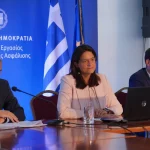Written by Anna Apergi Konstantinidis, Special Advisor Diversity Charter Greece
The day has been commemorated since 2009, as a memory of the struggles of trans activist Rachel Crandal for the lack of recognition of trans people, but also in the antithesis of the other International Day, which is honored every year on November 20, the International Trans Day of Remembrance, which honors trans people who were murdered around the world on the altar of irrational hatred and transphobia, as a necessity to honor the lives, the embodied struggle and to strengthen the visibility of trans people, because the lives of trans people matter, as do those of every person who fights for rights and freedoms.
You might ask me: Why would there be a specific day for trans visibility? What good does it do?
The rights of our fellow trans people are human rights and should be treated as such. We should always look for opportunities and speak openly about human rights. Some people believe that human rights only concern certain subgroups of the population, but this is wrong.
Our human rights concern all of us, everything and everyone . Every single person. The freedom of assembly, of association, the free expression of ideas, the right to private and family life, the right to dignity and the prohibition of inhuman and degrading treatment, the right to equal treatment and the prohibition of discrimination and much more, concern all people and we should always talk about all of these, we should not take anything for granted!
The Council of Europe’s Commissioner for Human Rights, Thomas Hammarberg, in his Report entitled “Human Rights and Gender Identity”, 14 years ago, wrote: “The human rights situation of transgender/trans people is largely ignored, no interest is shown, even though their problems are very serious and are found only in this group . Transgender people face discrimination, intolerance and outright violence to the maximum. Their basic human rights are violated , including the right to life, the right to their physical integrity and dignity, the right to health” .
This phrase of the Father Commissioner, written 14-15 years ago, is still -unfortunately- relevant, while the fact that “…their problems are very serious and are found only in this group” , which may sound heavy to some, clearly tells us that transgender people are the most vulnerable group of all social groups .
Unfortunately, it is a reality that although our societies have progressed and steps have been taken towards true equality, trans people in Greece in 2025 continue to face a wide range of stereotypes , prejudices, harassment, discrimination and violence , as well as limited access to employment, social welfare, insurance, healthcare, education and vocational training, while they are also confronted with hate speech in both the private and public spheres.
In a more disadvantaged position are even more vulnerable subgroups such as our older trans fellow human beings who are trying to survive on meager benefits, since they are not entitled to any pension due to their exclusion from the workplace, trans people with disabilities, trans people living with HIV, trans people with a refugee/immigrant profile or those seeking international protection, our trans people living in prisons or in detention conditions, trans people who work in sex work and whose work is not recognized as work in the majority of cases, and trans homeless people or those living in conditions of homelessness.
Although in 2017 the law on legal gender recognition (Law 4491/2017) was passed in our country, taking the first positive step towards the recognition of transgender people, 8 years later it continues to fail to meet the needs of the transgender community and to fail to comply with our country’s international and European obligations on human rights. Also, although equality in civil marriage was passed last February, transgender people were not fully included in it, as a result of which transgender parents are still not recognized as parents of their existing children.
However, in addition to these, in 2025, transgender people in Greece are still considered “mentally disturbed”, since our country has not yet incorporated the revised ICD-11 classification list of the World Health Organization (WHO), which was made public in 2028, and from which all diagnoses related to transgender identities have been removed from the chapter on mental disorders. This, in addition to the stigma, also leads to a series of discrimination and exclusions in many areas, such as health, but also work.
Furthermore, trans people continue to be frequent victims of attacks and hate crimes. Consistently in recent years, according to the records of the Racist Violence Incident Recording Network , the rates of racist incidents and discrimination against trans people remain high, exceeding 20% of the total recorded incidents.
“It is revolutionary for any trans person to choose to be visible in a world that doesn’t want us to exist,” trans writer and activist Lavern Cox once said. This phrase encapsulates the answer to the question “why have a specific day for trans visibility?”
Our trans fellow human beings do not start from the same starting point as all other people . However, they have the same concerns, the same anxieties for the future, the same emotional, social, personal needs, as every human being. Diversity and difference are wealth, not a problem . It is our strength and all people (and our trans fellow human beings) should have the same opportunities and equal treatment.











